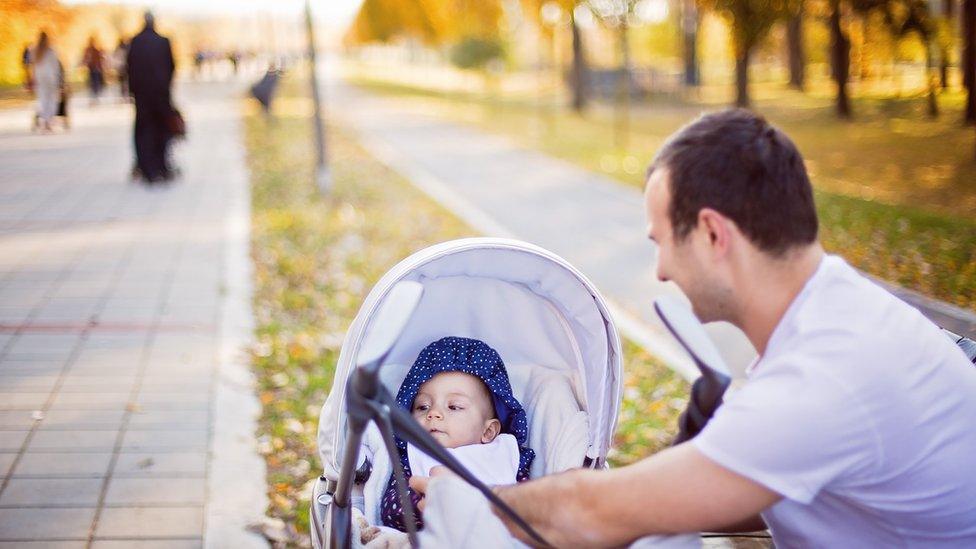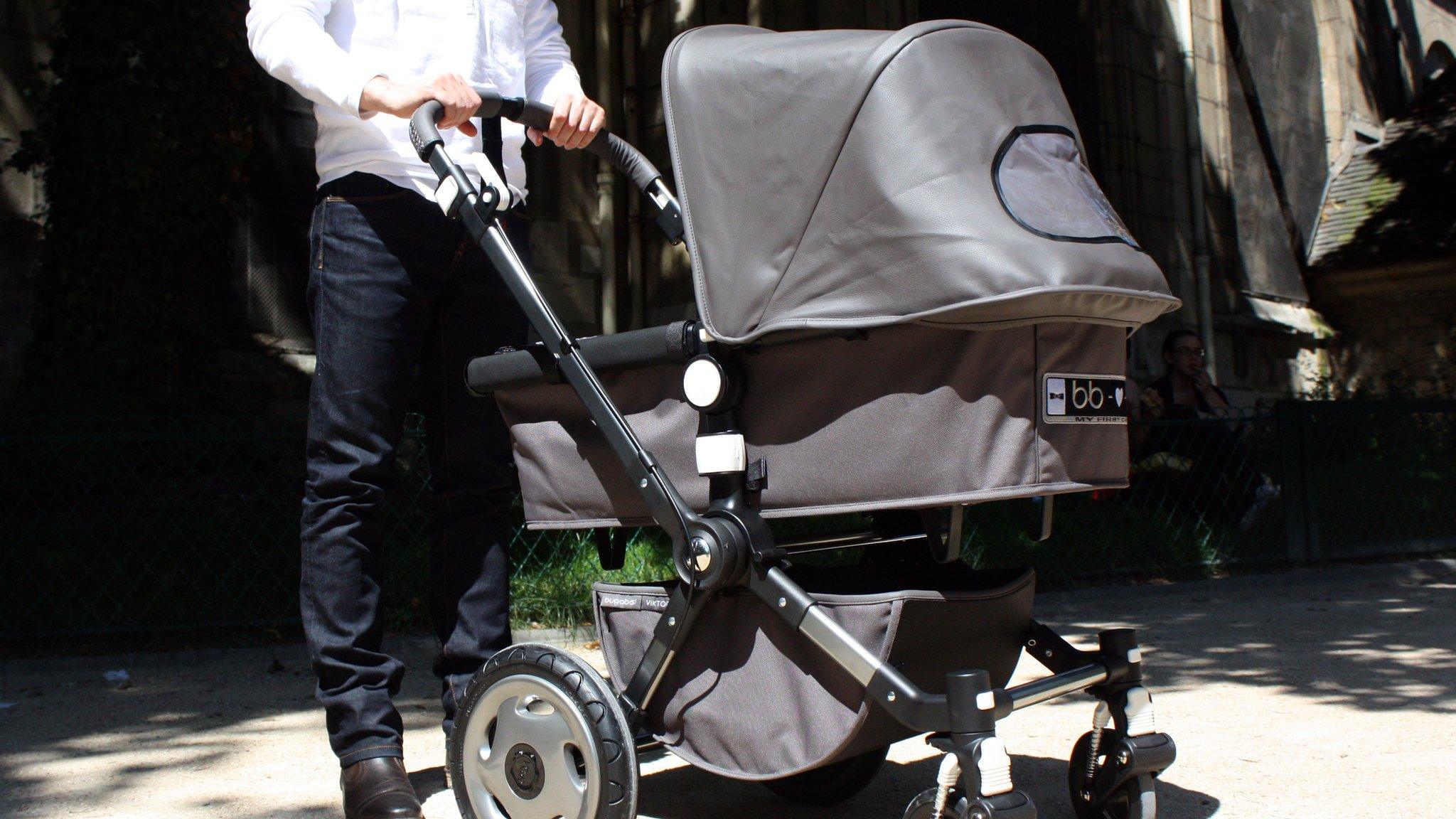Working dads lose out in workplace, say MPs
- Published

"I came back to a load of photocopying," says tax specialist Richard Cahill of his return to work at a major international company after the birth of his second child.
"Basically they wanted to make the point that they weren't happy with me," he says of his former employers.
He had taken the time off under government rules which since 2015 have allowed mums and dads to share parental leave, external - but according to a new report from MPs, his story is typical of many working fathers who want to take a more equal share of childcare but fear their employers' reaction if they ask for flexible work.
Government efforts to support fathers in the workplace have not yet delivered despite good intentions, says the report, from MPs on the Women and Equalities Committee., external
"Workplace policies have not kept up with the social changes in people's everyday lives," according to committee chair Maria Miller, who describes "outdated assumptions" about men's and women's roles in relation to work and childcare" as a further barrier to change.
What dads think of paternity increase call
'What is your wife doing?'
Richard is married to Helen, who already earned more than him and wanted to keep her high-flying career.
They both worked long hours, but decided one of them had to be there for school pick-ups, bath time and bedtime stories, the same as their own parents when they were growing up.
"We were very open and honest with each other," he says.
So Helen took the first seven months of parental leave after giving birth, and then Richard took the next five months.
He had wanted to ask for part-time work - but his difficulties over parental leave suggested there was no point. So he quit.
The MPs found today's fathers were doing a greater proportion of the childcare than ever before - but still only about half the amount women do - and men who are agency or casual workers are least likely to get flexible work that suits their childcare needs, as they don't have access to full employment rights.
Richard is well qualified and had been a high earner in a full-time job, but his search for flexible work was frustrating.
At interviews, he was too often asked: "But what is your wife doing? Why isn't your wife picking up the children?"
They found it amazing that a man actually wanted to raise his children, he says.
The MPs' report draws on research from the charity Working Families, external which showed over half of young fathers want to downshift at work to accommodate family life.
The committee recommends a series of changes to make it easier for men to work flexibly, including:
all new jobs to be advertised as flexible
better workplace rights for fathers who are agency or casual workers
a possible 12 weeks dedicated leave for fathers in the child's first year
better paternity pay
Eventually, Richard applied for a job as a Civil Service economist.
"I raised right at the beginning that I wanted flexible part-time work.
"Their response was, immediately: 'We're not going to pay you very well but we would be absolutely happy and would confidently support you in what you need to do with your family.'
"And they have been absolutely true to their word. I have pretty well got to choose the hours I work."
The government argues that improving fathers' rights is key to improving gender equality in the workplace and cutting the gender pay gap.
"A level that works"
A spokeswoman for the Department for Business, Energy and Industrial Strategy welcomed the report, saying ministers were determined to ensure everyone could succeed in the workplace.
"We have also launched a campaign to encourage more parents to take up Shared Parental Leave so they can better balance childcare and their careers, and we are launching a taskforce to review how the right to request flexible working is currently being applied."
Richard says his flexible job is worthwhile and enjoyable. And his wife is happy too.
"She enjoys challenging herself and advancing herself. That's great for her.
"I am there for my children. I take my daughter to Cubs after school. I put both children to bed. I bath them...
"The kids are happy. They're not missing out on anything.
"So after a year of struggling a bit we seem to have found a level that works for us as a family."
- Published12 May 2017
